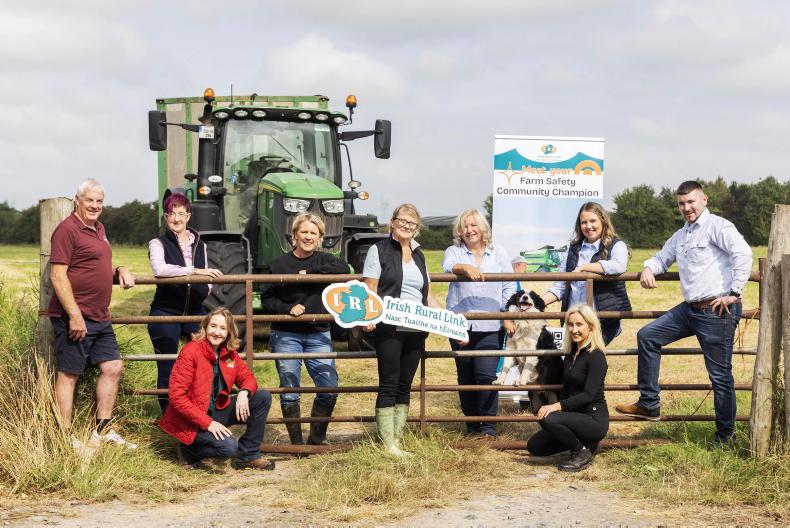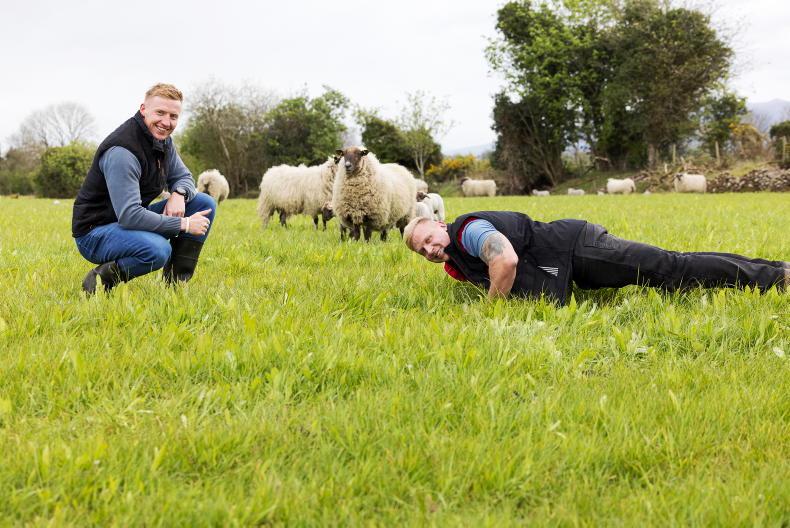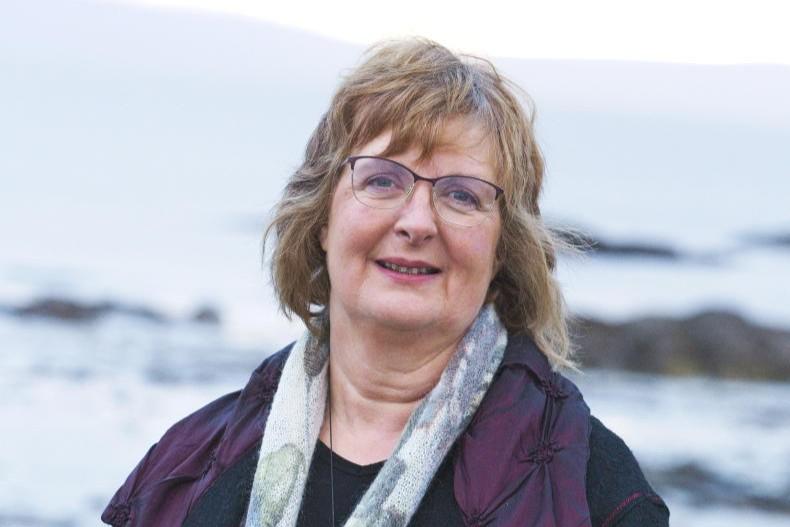Early intervention and thorough assessment for children with additional needs is not just beneficial – it is essential.
By identifying needs early and implementing targeted supports, children have a much greater chance of reaching their full potential.
This proactive approach not only enhances individual outcomes but also supports families and has a positive societal impact.
Imagine having a child with additional needs and having to wait over five years for an assessment that qualifies them to access the support they need.
This is the reality that was raised in the Dáil Éireann by Deputy Leader of the Social Democrats, Cian O’Callaghan as he highlighted the challenges that thousands of families across Ireland are currently facing.
“Some 14,221 children are overdue for an assessment of needs and a further 12,920 children are on waiting lists for children’s disability network teams, (CDNTs).
“Children with additional needs are being left behind while their parents jump through hoops to try to access basic services and support,” Cian said.
700 vacancies
He also highlighted the issue facing recruitment as there were 700 vacancies in CDNTs including health and social care professionals. CDNTs provide services for children with additional needs.
Each team member specialises in different areas of child development.

Deputy Leader of the Social Democrats, Cian O’Callaghan. /Oireachtas
They work together to support children with complex needs. Some areas across Ireland are experiencing staff shortages as high as 70%.
In response to Cian’s remarks, Taoiseach Micheál Martin said:
“I accept fully that the journey of parents of children with special needs is an extremely challenging, difficult and traumatic one. They simply have to fight too hard and too long for access to services and in some cases, though not all, for education and access to school places.

Taoiseach Micheal Martin at the Women and Agriculture conference 2022. \ Philip Doyle
“It is my objective as Taoiseach to change this story and it is a key priority of mine, along with housing and child poverty. I am establishing a disability unit in the Department of the Taoiseach.
“The CDNTs and HSE are continuing to recruit across the 93 CDNTs. The current recruitment campaign has issued about 145 job offers across key therapy roles.”
Admitting that progress is slow, he highlighted that some advancements have been made. There was a 17% increase in staff from 2023 to 2024 and another 111 professionals are expected to join shortly.
Lifelong impact
Speaking about the strain on the system and lengthy waiting lists, Eileen O’Rourke, general secretary of the National Association of Boards of Management in Special Education told Irish Country Living it is having ‘a catastrophic and lifelong impact on these children’.
If a child isn’t highlighted by the HSE, they are not waitlisted for an Assessment of Need (AON), which is a huge issue as 80% of disabilities in Ireland are invisible and hard to pick up on.
“There is a waitlist of several years for an AON and that flags that a child might need a further diagnosis and intervention, resulting in a child being placed on another waiting list for four or five years for diagnosis and intervention. At this stage that child is almost finished primary school,” says Eileen.
The United Nations Convention on the Rights of Persons with Disabilities (UNCRPD) is an international human rights treaty. Article 24 of this treaty gives every child the right to equal universal access to everything they need.
“From the very earliest years of a child’s life, we’re denying them rights that are essential to their wellbeing, to their sense of self, to their self-esteem, to their meaningful engagement and role in life and their future happiness and fulfilment,” says Eileen.
About NABMSE

Eileen O’Rourke, General Secretary NABMSE.
The National Association of Boards of Management in Special Education (NABMSE) has been supporting Boards of Management (BOMs) in special education for over 50 years.
Over 300 school boards of management are members of NABMSE, this includes most special schools and mainstream schools at primary and post-primary level.
Funded by the Department of Education, NABMSE was originally set up to support special schools. Now they have expanded and work with any school that supports children with additional needs. They also collaborate with the NCSE to impact wider policy.
“People who have financial backing and people from a good socio-economic background have the advantage of being able to access a diagnosis and therapy privately. There is a financial benefit to people built in throughout our educational system.
“We see that particularly in post-primary schools – where people can afford it, they opt for private schools with smaller classes and extra tuition or they go to grind schools. It’s built into the success of our system that if you have money, you may have a better chance to succeed and achieve in the system. But if you don’t have the financial means or the knowledge, then it is a closed world,” emphasises Eileen.
Challenges facing schools
One of the biggest challenges facing the board of management and teachers across schools is access to the support that children desperately need, according to Eileen.
“It’s heartbreaking for teachers to see children who desperately need help but cannot access it. It has an enormous emotional toll as well as workload to a teacher who is trying their best for all of the children but knowing in their heart and soul that they are not qualified in any way to diagnose or meet the needs of a range of children in their class,” says Eileen.
Another key issue facing people with additional needs in Ireland is the lack of employment opportunities.
In Europe, Ireland has the lowest rate of employment for people with disabilities. The European average is 51% but in Ireland, it is 33%.
“Its multigenerational failure is built into the system. The sad part is the unemployment rate of people with a disability. If they’re able to remain in school or get into a special school and have stayed until graduation age, what prospect have they then [if they’re not getting employed],” says Eileen.
“The special education section within the Department of Education is working very hard with us.
“The NCSE has employed a huge number of people to try and improve the services they can give and they are providing support from autism and behavioural leads.
“We look forward to a meeting with Minister Michael Moynihan who is responsibile for special education and inclusion,” says Eileen.
In their manifesto, NABME have outlined nine measures calling on Government and stakeholders to implement to ensure no student is left behind. They include adequate funding, expanding essential supports, and prioritising inclusive policies to create a system where every child is empowered to thrive.
NCSE comment
“The NCSE plays a supporting role in assisting the Health Service Executive (HSE) Assessment Officers (AO), by contributing on education needs to be considered by the AO when preparing the HSE Assessment of Needs Report.
This is in accordance with our obligations outlined in section 8.3 of the Disability Act. Our support relates to applicants no longer waiting for their assessment process to begin. The NCSE do not hold data on children awaiting HSE assessment and treatment.
“The NCSE is not in a position to comment directly on the HSE assessment or treatment waiting lists. However, we are committed to working closely with the HSE to support applicants when their families engage with the Assessment of Needs process.”
Irish National Teachers’ Organisation
A spokesperson from the Irish National Teachers’ Organisation (INTO) told Irish Country Living, “In recent years, the INTO has been advocating strongly for additional therapeutic, counselling and psychology supports for children who attend primary and special schools.
“The union has also highlighted the need for early intervention strategies to assist children before they begin in junior infants.
“We have called for the pilot in-school counselling scheme to be extended to all primary schools and have welcomed the Government’s decision to act on our proposal that therapists be employed directly by the Department of Education and Youth.
“It remains imperative that all children who need additional support and wrap-around care in the education system receive it from health professionals in a timely manner.”
Currently 14,000 children are currently waiting on an assessment of needs.
A further 12,920 are on the waiting list for children’s disability network teams (CDNTs).
Ireland ranks the lowest in the EU for disability employment rate at 32%, almost 20% below the EU average of 51%.
More than 14,000 children are waiting for an assessment of needs and a further 12,920 are on the waiting list for CDNTs. If your child is still waiting, and you would like to share your story, please fill in the form here. We are keen to highlight the impact these waiting times are having on children and their families in rural Ireland.
Early intervention and thorough assessment for children with additional needs is not just beneficial – it is essential.
By identifying needs early and implementing targeted supports, children have a much greater chance of reaching their full potential.
This proactive approach not only enhances individual outcomes but also supports families and has a positive societal impact.
Imagine having a child with additional needs and having to wait over five years for an assessment that qualifies them to access the support they need.
This is the reality that was raised in the Dáil Éireann by Deputy Leader of the Social Democrats, Cian O’Callaghan as he highlighted the challenges that thousands of families across Ireland are currently facing.
“Some 14,221 children are overdue for an assessment of needs and a further 12,920 children are on waiting lists for children’s disability network teams, (CDNTs).
“Children with additional needs are being left behind while their parents jump through hoops to try to access basic services and support,” Cian said.
700 vacancies
He also highlighted the issue facing recruitment as there were 700 vacancies in CDNTs including health and social care professionals. CDNTs provide services for children with additional needs.
Each team member specialises in different areas of child development.

Deputy Leader of the Social Democrats, Cian O’Callaghan. /Oireachtas
They work together to support children with complex needs. Some areas across Ireland are experiencing staff shortages as high as 70%.
In response to Cian’s remarks, Taoiseach Micheál Martin said:
“I accept fully that the journey of parents of children with special needs is an extremely challenging, difficult and traumatic one. They simply have to fight too hard and too long for access to services and in some cases, though not all, for education and access to school places.

Taoiseach Micheal Martin at the Women and Agriculture conference 2022. \ Philip Doyle
“It is my objective as Taoiseach to change this story and it is a key priority of mine, along with housing and child poverty. I am establishing a disability unit in the Department of the Taoiseach.
“The CDNTs and HSE are continuing to recruit across the 93 CDNTs. The current recruitment campaign has issued about 145 job offers across key therapy roles.”
Admitting that progress is slow, he highlighted that some advancements have been made. There was a 17% increase in staff from 2023 to 2024 and another 111 professionals are expected to join shortly.
Lifelong impact
Speaking about the strain on the system and lengthy waiting lists, Eileen O’Rourke, general secretary of the National Association of Boards of Management in Special Education told Irish Country Living it is having ‘a catastrophic and lifelong impact on these children’.
If a child isn’t highlighted by the HSE, they are not waitlisted for an Assessment of Need (AON), which is a huge issue as 80% of disabilities in Ireland are invisible and hard to pick up on.
“There is a waitlist of several years for an AON and that flags that a child might need a further diagnosis and intervention, resulting in a child being placed on another waiting list for four or five years for diagnosis and intervention. At this stage that child is almost finished primary school,” says Eileen.
The United Nations Convention on the Rights of Persons with Disabilities (UNCRPD) is an international human rights treaty. Article 24 of this treaty gives every child the right to equal universal access to everything they need.
“From the very earliest years of a child’s life, we’re denying them rights that are essential to their wellbeing, to their sense of self, to their self-esteem, to their meaningful engagement and role in life and their future happiness and fulfilment,” says Eileen.
About NABMSE

Eileen O’Rourke, General Secretary NABMSE.
The National Association of Boards of Management in Special Education (NABMSE) has been supporting Boards of Management (BOMs) in special education for over 50 years.
Over 300 school boards of management are members of NABMSE, this includes most special schools and mainstream schools at primary and post-primary level.
Funded by the Department of Education, NABMSE was originally set up to support special schools. Now they have expanded and work with any school that supports children with additional needs. They also collaborate with the NCSE to impact wider policy.
“People who have financial backing and people from a good socio-economic background have the advantage of being able to access a diagnosis and therapy privately. There is a financial benefit to people built in throughout our educational system.
“We see that particularly in post-primary schools – where people can afford it, they opt for private schools with smaller classes and extra tuition or they go to grind schools. It’s built into the success of our system that if you have money, you may have a better chance to succeed and achieve in the system. But if you don’t have the financial means or the knowledge, then it is a closed world,” emphasises Eileen.
Challenges facing schools
One of the biggest challenges facing the board of management and teachers across schools is access to the support that children desperately need, according to Eileen.
“It’s heartbreaking for teachers to see children who desperately need help but cannot access it. It has an enormous emotional toll as well as workload to a teacher who is trying their best for all of the children but knowing in their heart and soul that they are not qualified in any way to diagnose or meet the needs of a range of children in their class,” says Eileen.
Another key issue facing people with additional needs in Ireland is the lack of employment opportunities.
In Europe, Ireland has the lowest rate of employment for people with disabilities. The European average is 51% but in Ireland, it is 33%.
“Its multigenerational failure is built into the system. The sad part is the unemployment rate of people with a disability. If they’re able to remain in school or get into a special school and have stayed until graduation age, what prospect have they then [if they’re not getting employed],” says Eileen.
“The special education section within the Department of Education is working very hard with us.
“The NCSE has employed a huge number of people to try and improve the services they can give and they are providing support from autism and behavioural leads.
“We look forward to a meeting with Minister Michael Moynihan who is responsibile for special education and inclusion,” says Eileen.
In their manifesto, NABME have outlined nine measures calling on Government and stakeholders to implement to ensure no student is left behind. They include adequate funding, expanding essential supports, and prioritising inclusive policies to create a system where every child is empowered to thrive.
NCSE comment
“The NCSE plays a supporting role in assisting the Health Service Executive (HSE) Assessment Officers (AO), by contributing on education needs to be considered by the AO when preparing the HSE Assessment of Needs Report.
This is in accordance with our obligations outlined in section 8.3 of the Disability Act. Our support relates to applicants no longer waiting for their assessment process to begin. The NCSE do not hold data on children awaiting HSE assessment and treatment.
“The NCSE is not in a position to comment directly on the HSE assessment or treatment waiting lists. However, we are committed to working closely with the HSE to support applicants when their families engage with the Assessment of Needs process.”
Irish National Teachers’ Organisation
A spokesperson from the Irish National Teachers’ Organisation (INTO) told Irish Country Living, “In recent years, the INTO has been advocating strongly for additional therapeutic, counselling and psychology supports for children who attend primary and special schools.
“The union has also highlighted the need for early intervention strategies to assist children before they begin in junior infants.
“We have called for the pilot in-school counselling scheme to be extended to all primary schools and have welcomed the Government’s decision to act on our proposal that therapists be employed directly by the Department of Education and Youth.
“It remains imperative that all children who need additional support and wrap-around care in the education system receive it from health professionals in a timely manner.”
Currently 14,000 children are currently waiting on an assessment of needs.
A further 12,920 are on the waiting list for children’s disability network teams (CDNTs).
Ireland ranks the lowest in the EU for disability employment rate at 32%, almost 20% below the EU average of 51%.
More than 14,000 children are waiting for an assessment of needs and a further 12,920 are on the waiting list for CDNTs. If your child is still waiting, and you would like to share your story, please fill in the form here. We are keen to highlight the impact these waiting times are having on children and their families in rural Ireland.












SHARING OPTIONS